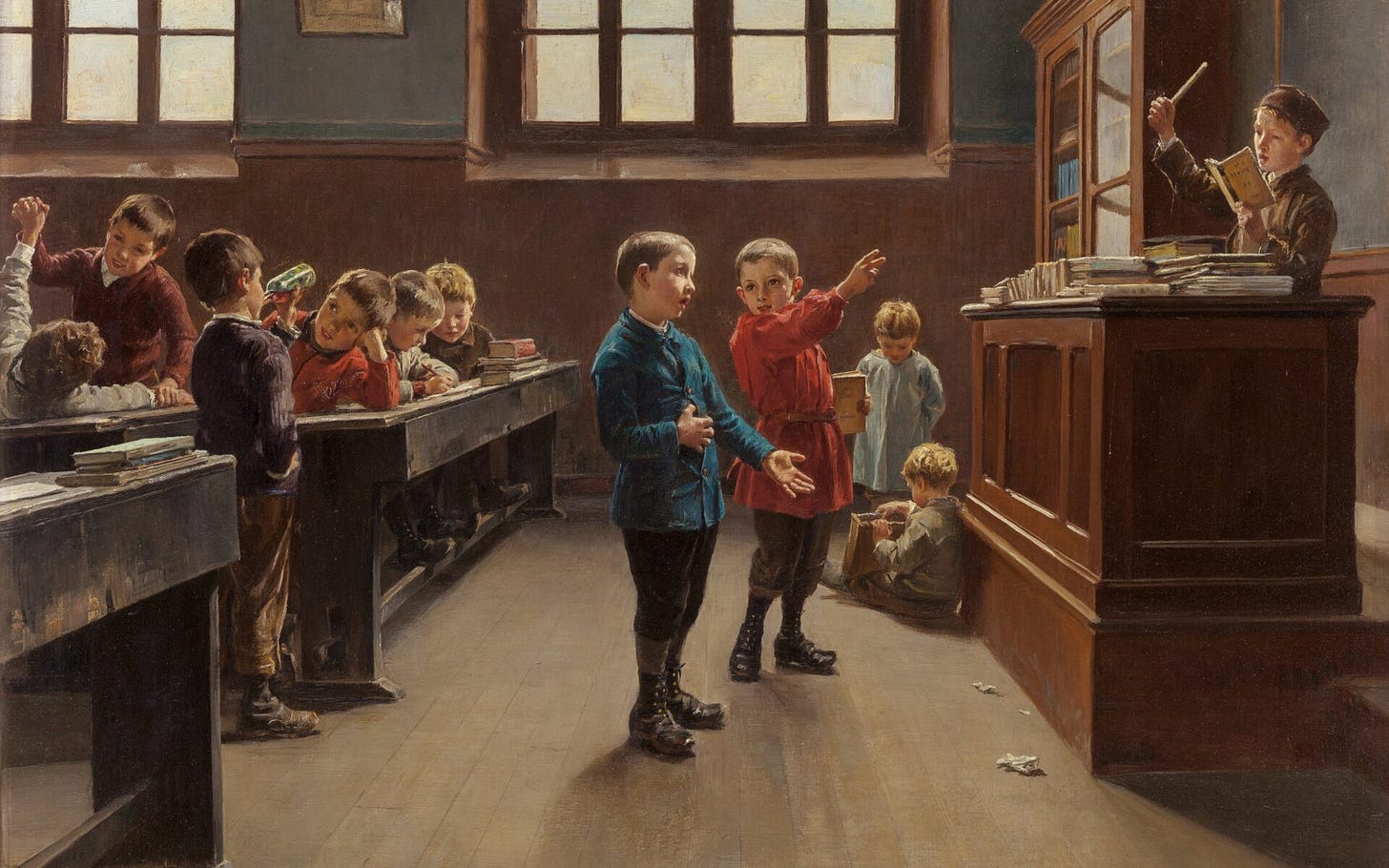The last month of the school year is incredibly full. We rolled out our summer reading programs for our secondary students this past week while I continue to write and polish a scope and sequence for each grade and teach material new to me.
In all the bustle, I forgot to share a book review I promised in Burgeoning, my March newsletter!! It may not be of interest to all of my readers, but if you are new to teaching in the world of classical Christian education or if you are hiring new teachers, this is an amazing guide by my friend
. No classroom is neutral, and teachers must be intentional in how they view their God-given work and implement routine.Here’s a taste from Front Porch Republic!
In first grade, I had the misfortune of being the first left-handed student Mrs. Posey had ever taught. I sat in the front row by her desk “because you’re different,” she huffed. My five-year-old mind thought she was an ancient grump. She grumbled when she “had to” give me a pair of left-handed scissors. She grumbled when she corrected my pencil position. I felt her glare at the slant of my letters.
I was plain scared of her, and I’m pretty sure others were too. Whether Mrs. Posey knew it or not, her classroom had a culture. Every first grade classroom does. Every type of classroom, in fact, has structure, routine, and expectations, intentional or not. And the teacher is the core of that culture.
Mandi Gerth’s Thoroughness and Charm: Cultivating the Habits of a Classical Classroom addresses this very issue. Classroom culture may develop accidentally, but the truth is that a neutral classroom does not exist. Although her apologia is intended for classical Christian educators, Gerth speaks to all teachers: “To be great teachers, we must do so consciously and intentionally, for we cannot avoid crafting culture, and we must be careful of the message we send.”
Gerth first establishes the foundational ideals of classical education. It’s not a dull, dry history but rather a personable and hope-filled conversation. Gerth explains how the Western tradition has lasted centuries because its very ideas are living and lasting. The essential human questions that form the backbone of classical education have been asked since humankind fell.
Instant knowledge is too easy, Gerth says. I know I want to have the big picture understanding she mentions, to see the scope of history and tradition, and I want the same for my students. Steeping our students in a long, unfolding tradition may appear a pat answer to an instant Google query, but it’s what students in fact need. Gerth writes that in the day to day, “We must hope for moments of transcendence—moments that appear ‘out of nowhere’ and bring with them glory, understanding, and soul transformation.” In this vein Gerth maintains that classical Christian educators are not reinventing ideas or practices but rather returning. That is why we point our students to “the things that are eternal, the things that last, the things that are classical,” things that have been preserved by God’s providence. . .
More to come at the end of May! Stay tuned for summer reading, writing, conferences, and all the things!
As always, thanks for reading! Don't forget that the List Library at my website is always available to you, my readers.
Christine




